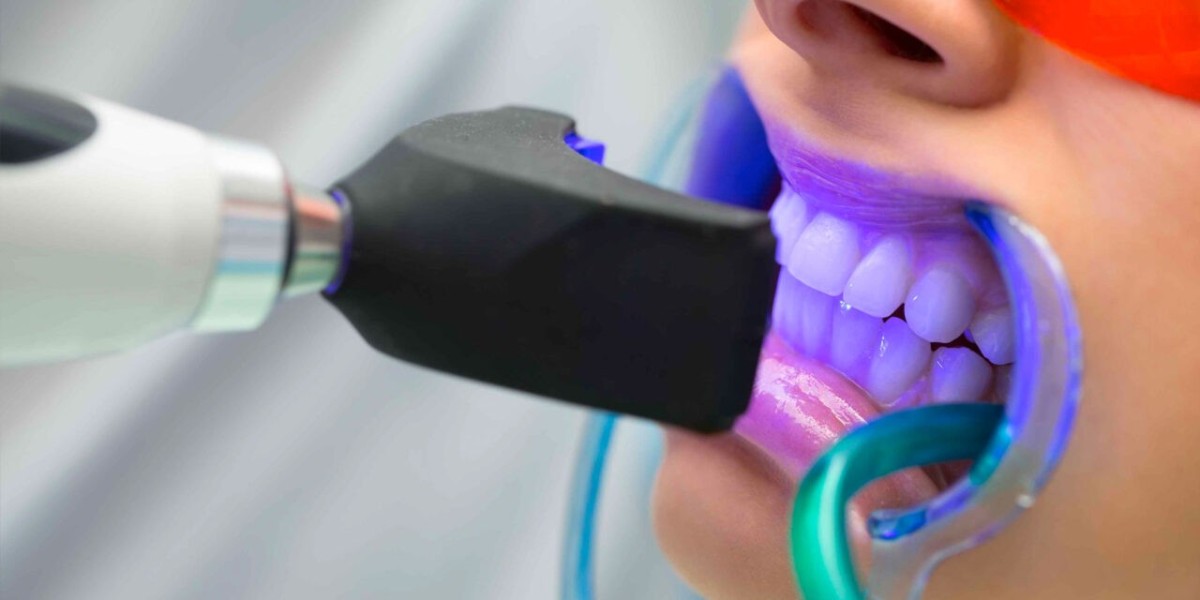Many expecting mothers wonder, can I whiten my teeth while pregnant? While a brighter smile is always desirable, safety during pregnancy takes top priority. Though there is limited scientific evidence suggesting that Teeth Whitening in Dubai is directly harmful during pregnancy, most dental professionals recommend postponing cosmetic whitening until after childbirth. Hormonal changes during pregnancy can also affect oral health, which further complicates the decision.
Understanding How Whitening Works:
To evaluate the safety of whitening during pregnancy, it’s important to understand how the process works. Most whitening treatments involve hydrogen peroxide or carbamide peroxide to break down stains and lighten the tooth’s surface. These chemicals can vary in strength depending on the type of treatment used—whether in-clinic or at home.
Common whitening methods include:
In-office treatments with high-concentration bleaching agents
Custom dental trays prescribed by dentists for at-home use
Over-the-counter whitening strips and gels
Whitening toothpastes with mild abrasives or low-level peroxide
Natural remedies like baking soda or oil pulling (limited efficacy)
Since most of these treatments involve chemicals that may be ingested in small amounts or absorbed through the oral tissues, the lack of conclusive research leads professionals to err on the side of caution during pregnancy.
Why Dentists Advise Waiting?
Most dental professionals agree that elective cosmetic procedures, including teeth whitening, should be postponed during pregnancy. This recommendation isn't due to proven harm but rather the absence of strong research confirming complete safety for both mother and baby.
Reasons dentists advise delaying whitening:
Lack of safety studies specific to pregnant women
Possibility of gum sensitivity due to hormonal changes
Unwanted exposure to chemicals during fetal development
More urgent dental priorities such as treating cavities or infections
Temporary tooth sensitivity may be intensified during pregnancy
Ultimately, your dental health during pregnancy is more about managing inflammation, maintaining hygiene, and ensuring no infections occur—cosmetic whitening can wait until postpartum.
Alternatives to Whitening During Pregnancy:
If you’re looking to maintain or improve your smile while pregnant, there are safe alternatives that don’t involve chemical whitening. Good oral hygiene and diet play a significant role in keeping teeth looking bright and healthy.
Safe options for a whiter appearance during pregnancy include:
Regular brushing and flossing to prevent plaque and stains
Using a non-peroxide whitening toothpaste
Avoiding stain-causing foods and beverages like coffee and tea
Oil pulling with coconut oil for natural stain reduction
Eating crunchy fruits and vegetables like apples and carrots to clean teeth naturally
These methods won’t give you the dramatic results of a professional whitening session, but they can help you maintain a clean and bright smile throughout your pregnancy.
Postpartum Whitening Considerations:
Once you’ve delivered your baby, Teeth Whitening Treatment becomes a more feasible option. However, if you’re breastfeeding, you may still want to be cautious. While there’s no definitive evidence that whitening chemicals transfer into breast milk, it’s wise to discuss any cosmetic treatment with your dentist and pediatrician.
Postpartum whitening tips:
Wait until breastfeeding is reduced or stopped before using high-strength bleaching agents
Start with mild treatments like whitening toothpaste or strips
Visit your dentist for an evaluation and customized whitening plan
Maintain results by avoiding stain-heavy foods and smoking
Ask about touch-up sessions once you've completed initial treatments
Once the baby phase settles down, whitening can be safely pursued under professional guidance to achieve the smile you’ve been waiting for.
Final Thoughts: Should You Whiten While Pregnant?
So, can I whiten my teeth while pregnant? Technically, it’s not strictly forbidden, but the general medical and dental consensus is to wait. The risk may be low, but with no compelling health benefit, it’s best to avoid exposure to whitening chemicals during a time when your body is already undergoing significant changes.
Key takeaways:
There’s no proven danger, but safety remains unclear
Dentists typically recommend delaying until after delivery
Pregnancy can cause gum sensitivity that worsens with whitening
Safe alternatives exist to keep your smile clean and healthy
Postpartum whitening is safe with guidance from professionals
Pregnancy is a time to focus on health and well-being for both you and your baby. While a brighter smile is always desirable, it can wait until the timing is truly right.






